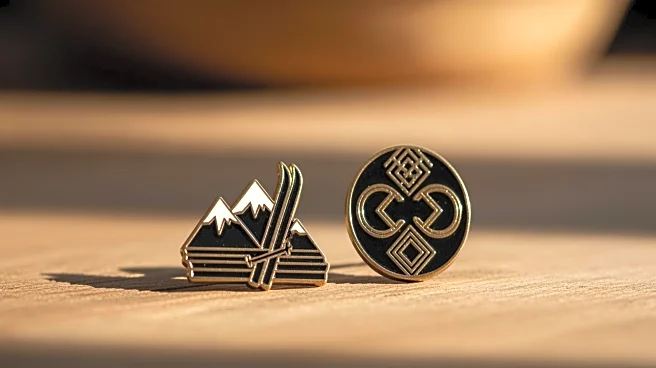What's Happening?
UCLA achieved a significant victory by defeating No. 7 Penn State 42-37 at the Rose Bowl, marking a major breakthrough for interim head coach Tim Skipper and the team, which started the season with a 0-4 record. Despite the excitement and the rare opportunity to celebrate such a monumental upset, security officials at the storied stadium kept fans in the stands, preventing them from storming the field. This decision maintained order and safety, as the Rose Bowl has a history of only two previous instances where fans rushed the field, the last being in 1998 when Michigan clinched the national championship.
Why It's Important?
The victory is significant for UCLA, as it marks the first time in 40 years that a team with a 0-4 record has defeated a ranked opponent. This win could potentially boost the morale and confidence of the team and its supporters, while also highlighting the effectiveness of security measures at major sporting events. The decision to prevent fans from storming the field underscores the importance of maintaining safety and order during high-stakes games, which can serve as a model for other venues hosting large crowds.
What's Next?
UCLA's victory may lead to increased attention and support for the team as they continue their season. The win could also influence future security protocols at the Rose Bowl and other stadiums, ensuring that celebrations remain safe and controlled. As the team builds on this success, stakeholders such as fans, sponsors, and the university administration may become more engaged, potentially leading to increased investment in the program.
Beyond the Headlines
The decision to prevent fans from storming the field reflects broader concerns about safety and crowd control at large events. It highlights the balance between allowing fans to celebrate and ensuring their safety, which is a critical consideration for event organizers. This incident may prompt discussions about the cultural significance of field storming in sports and its impact on fan experience.









